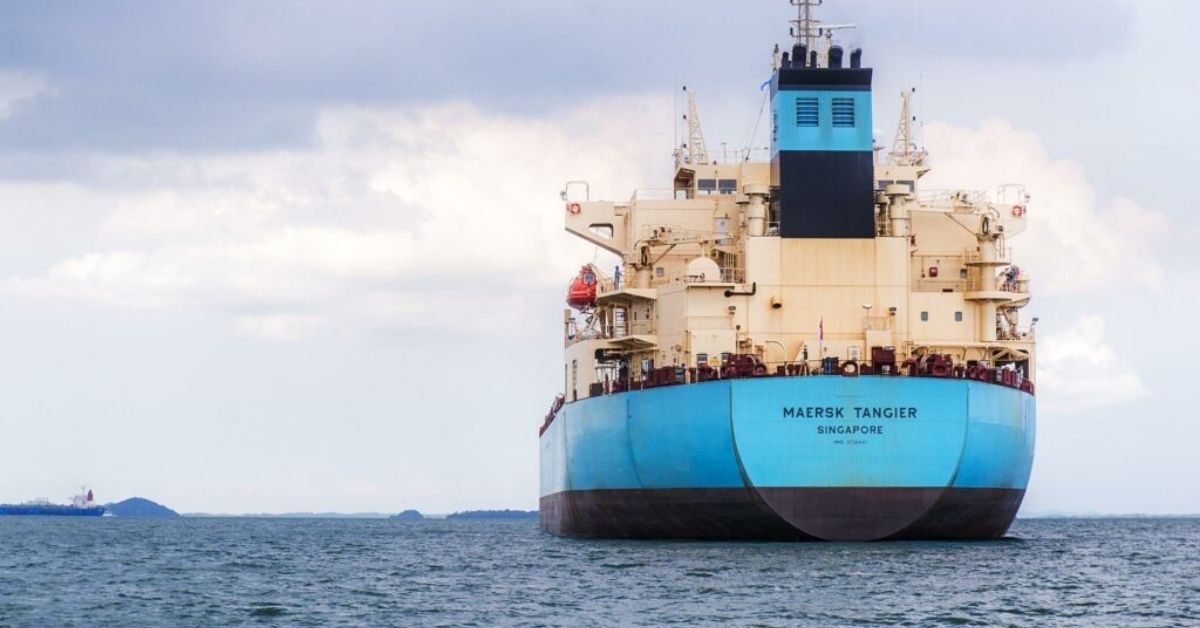Maersk Tankers is working on another business unit that will complement the latest expansion of the tanker company’s activities, ZeroNorth, which already has 1,500 vessels connected to its digital platform.
For the time being, the company will only confirm that a new business leg is in the pipeline and that it will likely be presented this week or next. CEO Christian M. Ingerslev will not comment on any further details in terms of the concept, but does confirm that the carrier, which used to form an important pillar in the A.P. Møller – Maersk group, is working to launch further initiatives aimed at broadening the scope of activities.
“ZeroNorth was launched just over six months ago and has grown from nine to 40 employees in that time, and the company has agreements with four percent of the fleet we think could be interested in the product. At the same time, the oil market is uncertain and volatile, and 2021 also looks tough, so we need to find new areas of investment,” says Ingerslev in an interview with ShippingWatch.
2020 is a good example of why it may be difficult to go all in on oil transports. Maersk Tankers expects black figures, although the annual report has yet to be settled completely. But the profit comes on the heels of a year in which rates soared in spring, when nearly 15 percent of the fleet was in use as floating stockpiles, putting an effective pressure on demand for tanker vessels, which ultimately pushed prices for both product tanker and crude oil reach to unprecedented levels.
But towards the end of the year, those ships had returned to the global fleet again, at a time when the coronavirus pandemic continued to effectively halt the global economy, and as a result also the demand for oil.
Strong full-year, weak fourth quarter
The annual report published by competitor Scorpio Tankers Thursday last week illustrates this trend well. Because, although the company booked a USD 91 million profit for the full-year, the fourth quarter ended with a USD 70 million deficit.
“The tanker market is under pressure, and that’s also the case now,” says Ingerslev.
The tanker pool under Maersk Tankers is another example showing that the business must be broadened beyond transporting gasoline or jet fuel across the seas. Maersk is not the only shipping company that aims to attract customers and competitors that do not want to handle the operation themselves, and which have an expectation that the results achieved in the pools are better than elsewhere. Maersk currently has seven pools, counting 236 vessels, and the plan is to grow this number.
Despite repeated questions from ShippingWatch about the results from the individual pools, Ingerslev maintains that it is not possible to calculate. He adds that it is a success if more shipping companies join, and that those that already partake do not opt out again.
“The ambition is to continue to grow. Few customers currently look for long-term contracts. It’s easy to enter and leave our pools. With the digital tools we have, shipowners achieve savings, but the contracts are also constructed in a way that the more you save yourself, the more you also get from the pool,” he says.
The pool is particularly big within MR vessels, while it does not contain any LR1s, which is where competitor Hafnia is big.
Climate strains oil demand
The uncertainty, which Ingerslev argues could ultimately end up defining when returns in the tanker market are good, currently depends on two important factors of which the first of them, the coronavirus pandemic, is expected to come more under control this year. But what will it actually mean for the tanker market? When will aviation return to pre-pandemic levels, or will it ever? Have companies realized the benefits of letting employees work from home, resulting in them no longer driving in their car to work?
Then there is the climate and the transition to new forms of energy, a shift that saw a boost in 2020, and which may slowly start to hollow out the market for oil transports.
“The world is headed in that direction, and while I think oil will continue to play a role going forward, demand will come under pressure. The positive thing right now is that no new ships are being ordered, because there’s uncertainty in terms of the new types of marine fuel. That also mean that access to capital is not straight forward. Shipping is sailing towards a greener future, which is good for the world,” he says.
Source: Shipping Watch








